TU Delft – Echo Energy-Generating Interfaculty Teaching Building
UNStudio was engaged by TU Delft to complete the Echo Energy-Generating Interfaculty Teaching Building in Delft, The Netherlands.
Echo is an energy-generating interfaculty building that offers a wide variety of teaching rooms to cater for the diversity of teaching methods and study styles at the university. As the most sustainable building at the TU Delft, Echo is contributing to the university’s ambitions to operate a fully sustainable campus by 2030.
A healthy campus building – for people and planet
1200 solar panels, smart installations, good insulation and a heat and cold storage system ensure that Echo will be able to provide more energy than it requires for its daily operations. This includes user-related energy, such as electricity consumption for laptops, lighting and catering. 90% of the furniture used in the building has also been reused.Transparency was essential to the design of Echo. It not only ensures maximum daylight inside the building (known to have health benefits for the users, but also reducing the need for artificial lighting), it also creates a visual connection to the wider campus and to surrounding nature. As such, a closed-in, ‘institutional’ experience for the users is avoided, while the open and public character of the building connects the two sides of the campus and provides a bright, uplifting and welcoming environment for faculty and students alike.
A building that stimulates movement and collaboration
Echo is an education building with multifunctional spaces that transcends current learning environments. The design supports the contemporary culture of ‘Everything Anywhere’, where the in-between spaces are also of great importance and physical movement is stimulated. Echo therefore also provides space for unstructured time: a variety of platforms for reflection, inspiration and communication.The interior offers a warm welcome to visitors. At specific positions, bamboo ribs extend along the ceiling, forming an integral part of the design. The crafted look and feel of the bamboo is extended around the central staircase, that in one gesture joins the study and cooperation spaces into one connected world of learning, collaboration and connection. This centrally positioned ‘grand stair’ facilitates and promotes physical movement through the building and thus contributes to the health of students, researchers and teachers alike.
A future-proof campus is an active campus. That is why Echo not only connects with the surrounding public space, it also defines it. The adjacent square continues through the transparent ground floor of the building and connects with the street on the other side, turning the ground floor of Echo into a covered public square and a public connector that makes the invisible world of learning a visible and engaging experience.
Future-proof: a wide variety of flexible teaching rooms
The 8,844 m2 Echo building provides space for lectures and tutorials, group work, project-based teaching, debates and self-study for around 1,700 students by way of the lecture rooms, classrooms and a variety of study spaces.The various teaching rooms have been designed based on the current and future needs of the lecturers and students. In Echo, the focus is on medium-sized and large teaching rooms, accommodating between 150 and 700 people. In addition to these larger rooms, there is also a case-study room that is particularly suitable for motivational teaching/interaction between lecturers and students. In addition there are four level rooms for project-based teaching, each accommodating almost 70 people.
Design: UNStudio
Design Team: Ben van Berkel, Arjan Dingsté with Marianthi Tatari, Jaap-Willem Kleijwegt, Ariane Stracke and Piotr Kluszczynski, Thys Schreij, Mitchel Verkuijlen, Bogdan Chipara, Krishna Duddumpudi, Fabio Negozio, Vladislava Parfjonova, Marian Mihaescu, Ajay Saini, Ryan Henriksen, Shangzi Tu, Xinyu Wang
Contractor: BAM Bouw en Techniek
Photography: Evabloem, Hufton+Crow

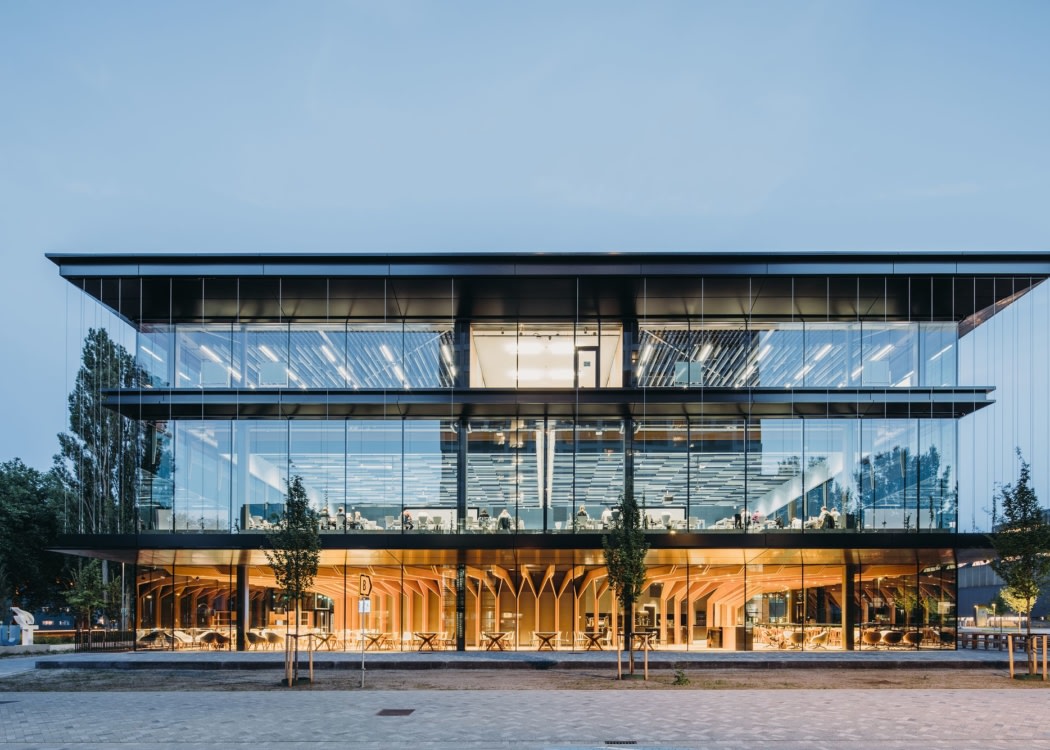
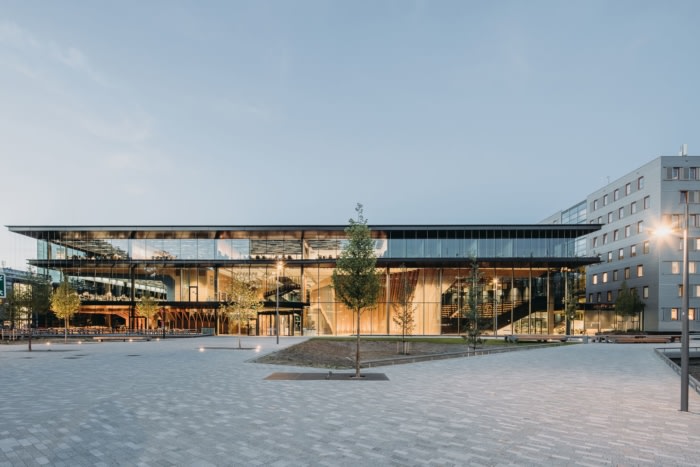
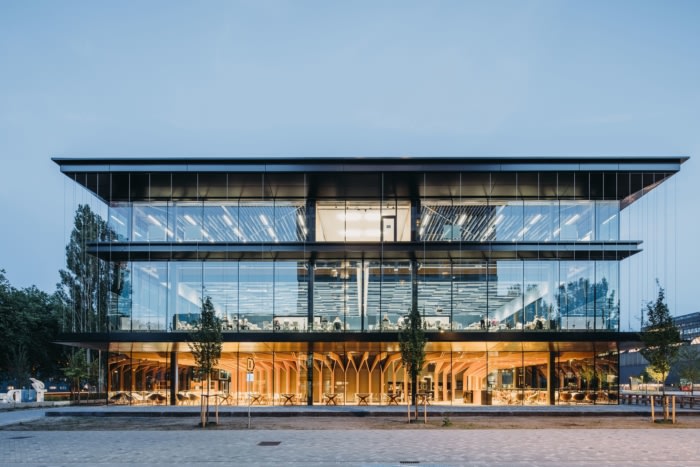
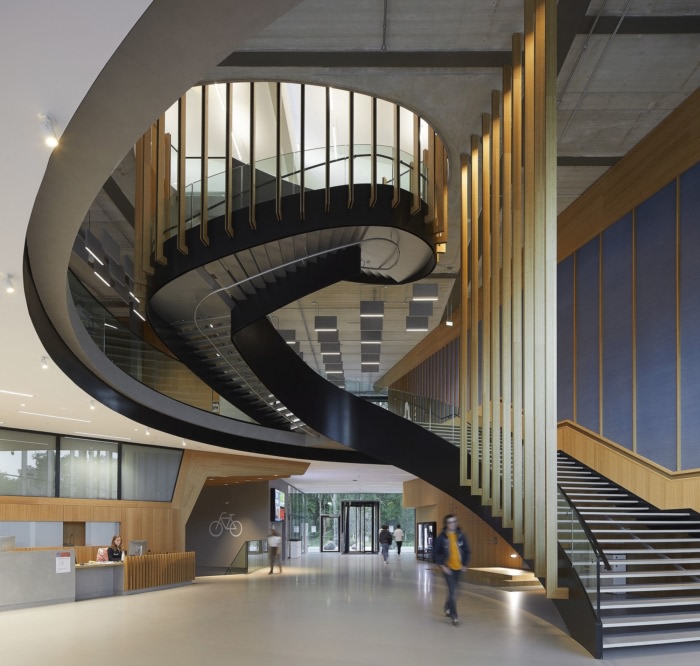
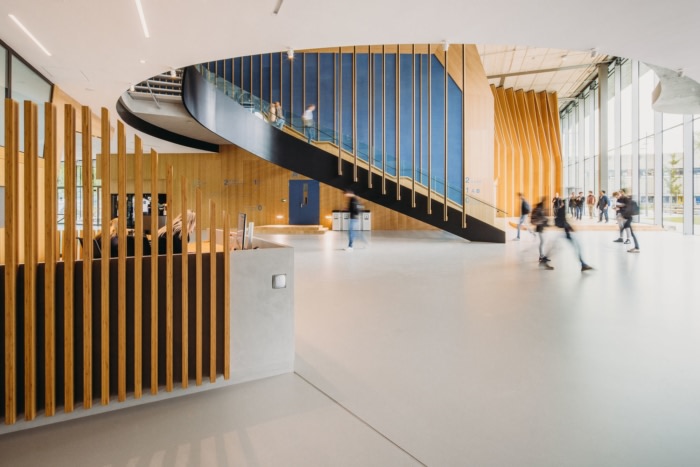
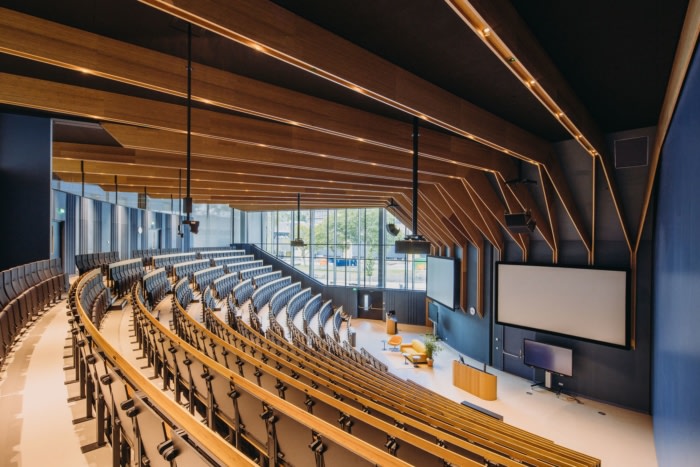
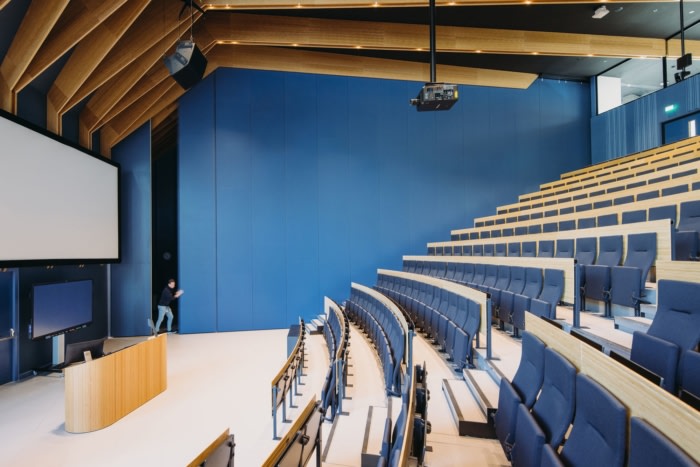
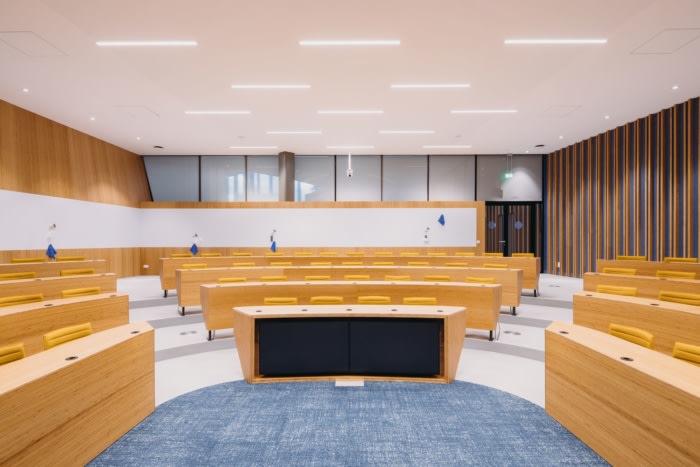
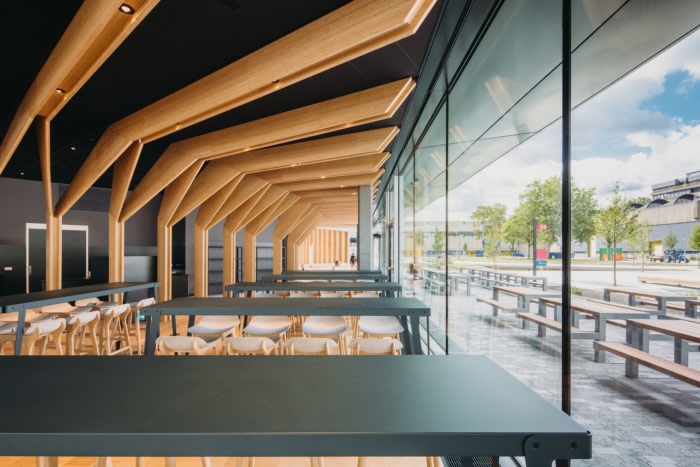
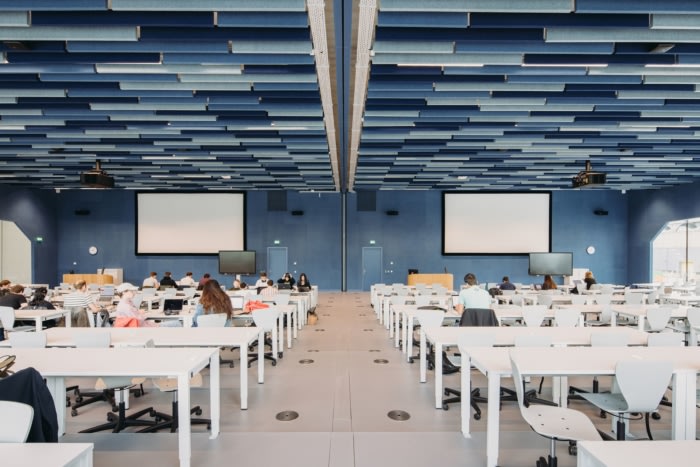
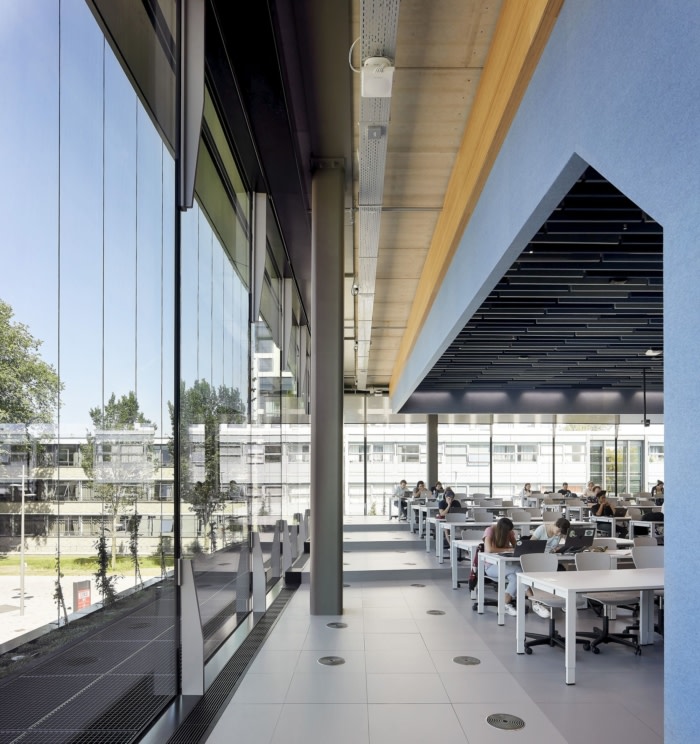
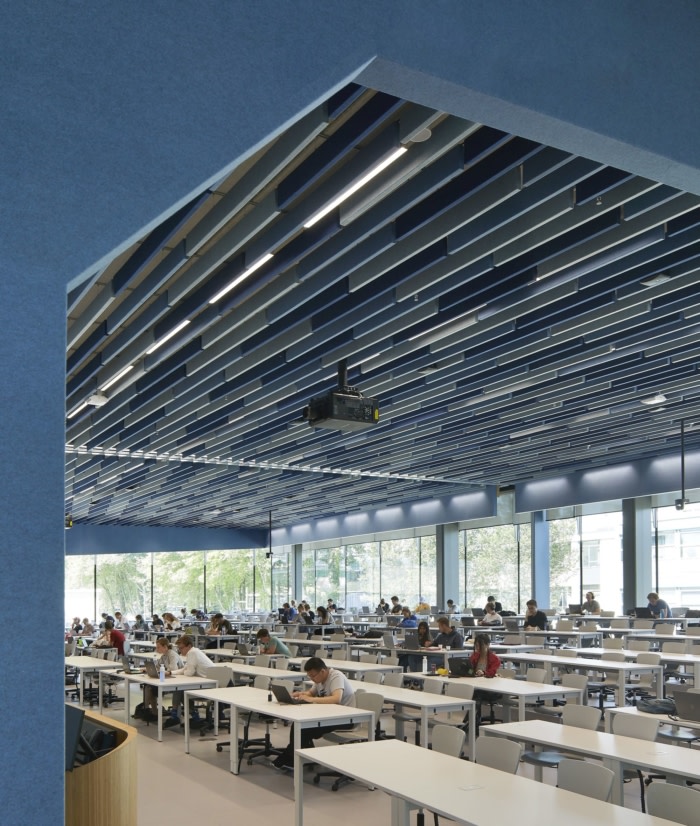




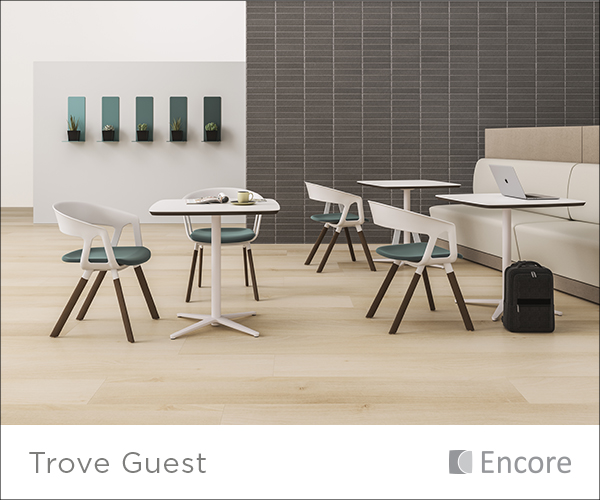






Now editing content for LinkedIn.